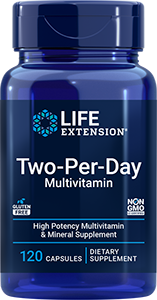Eye Health

Eat your Way to Better Eye Health
By healthwriter
Although you probably take your vision for granted, it is essential you take good care of your eyes. This doesn't just mean attending an annual sight check, but taking other steps to protect your eyes. For instance, not smoking, using sunglasses to guard against UV rays and wearing safety glasses will all help to safeguard your sight.
However, you should also choose plenty of foods rich nutrients known to benefit your vision. Omega-3 fats, lutein, vitamin C and E, and zinc all play a role in promoting good eye health, but which foods are the best sources of these nutrients?
Fish, nuts and seeds for omega-3
Oily fish, such as salmon, sardines, mackerel and herring, provide good amounts of omega-3 fatty acids. Not only are omega-3s important for an infant's developing vision, but they may also protect against macular degeneration, which leads to central vision loss.
If you don't eat fish, walnuts and flaxseeds are another useful source of omega-3s. Besides snacking on walnuts, try adding them to cereal, natural yogurt and salad. You will need to use ground flaxseeds to make the omega-3 oils available to your body, though you can easily add the ground seeds to yogurt, smoothies and soup.
Products
Think green, orange and yellow for lutein
Broccoli, spinach, orange peppers, butternut squash, oranges, sweetcorn and kiwi fruit are among the vegetables and fruits that provide most lutein. The antioxidant activity of lutein helps to protect your eyes from high-energy rays and may reduce your risk of developing cataracts as you age.
As lutein is a fat-soluble vitamin, drizzle vegetables and salad with a little olive oil to help your body absorb lutein.
Look beyond citrus for vitamin C
Although it is true that citrus fruits offer lots of vitamin C, there are plenty of other options for getting a good intake of this antioxidant vitamin. Berries, kiwi fruit, guavas, papayas, tomatoes, bell peppers, broccoli, green leafy vegetables, green peas and green beans are also a great bet for vitamin C. Like lutein, vitamin C protects your eyes from damaging free radicals.
Choose nuts and seeds for vitamin E
Vitamin E is another antioxidant vitamin that may guard against macular degeneration. Almonds, sunflower seeds, hazelnuts and peanuts are some of the best sources of vitamin E. If you like avocados, they are an alternative option for this antioxidant.
Protein rich foods are best for zinc
Getting enough dietary zinc may help with your night vision. Research also shows that when zinc is taken alongside antioxidant supplements, your risk of macular degeneration is greatly reduced.
Meat, fish, eggs and dairy produce are all rich in zinc. However, if you follow a vegetarian diet, pulses, nuts, seeds and whole grains also offer zinc in useful amounts.



